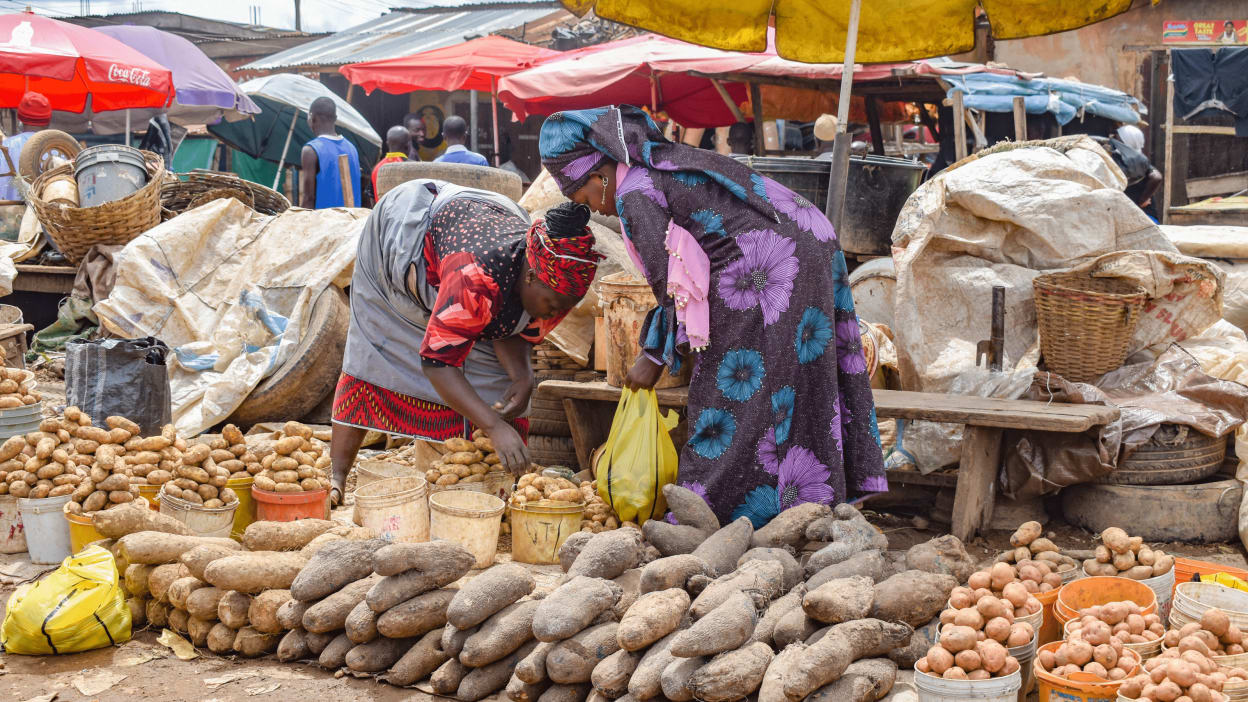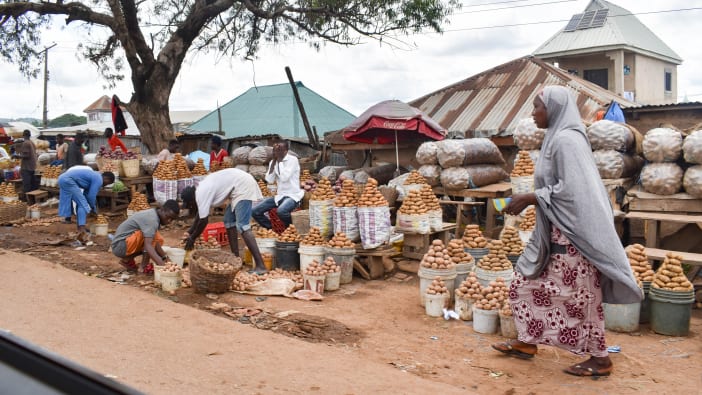What is food insecurity?
Based on the 1996 World Food Summit, food security is defined by four characteristics. These are:
- food should be physically available (there is enough food that actually exists);
- people should be able to access the food – both physically (they can get to it) and economically (they can afford to buy it);
- food is used effectively (the body is able to make the most of various nutrients in the food);
- the first three characteristics should remain stable over time.
Sufficient food for an adult female is considered to be between 2,200–2,300 calories per day, and for an adult male 2,900–3,000 calories per day.
Where people cannot access enough food – whether as a result of things like adverse weather conditions, political instability, or economic factors such as unemployment or rising food prices – this can lead to people becoming food insecure.
Food insecurity in Nigeria
In Nigeria, food inflation rose to 23 per cent in September 2022 pushing millions more people in the country into a state of food insecurity and a World Food Programme report at the end of 2022 stated that more than 5.9 million children in northwest and northeast Nigeria were acutely malnourished.
Findings by the International Monetary Fund (IMF) showed that some of this can be attributed to the war in Ukraine. The ongoing conflict there has caused problems with food supply and resulted in sharp price increases for wheat and other staple foods in countries, like Nigeria, that rely heavily on imports.
Climate change
Alongside this, Nigeria has also faced a variety of climate disasters. In 2022, Nigeria was hit by devastating floods that killed more than 500 people, displaced more than 1.4 million and destroyed about 90,000 homes.
With two-thirds of the country’s labour force involved in farming or herding, weather patterns and disasters (like the flooding) have a significant impact on the livelihoods of a large proportion of the population.
Between extended droughts and sudden floods, along with soil erosion and increased temperatures – all linked to climate change – food security has been severely affected as crops fail and animals starve or are washed away.














